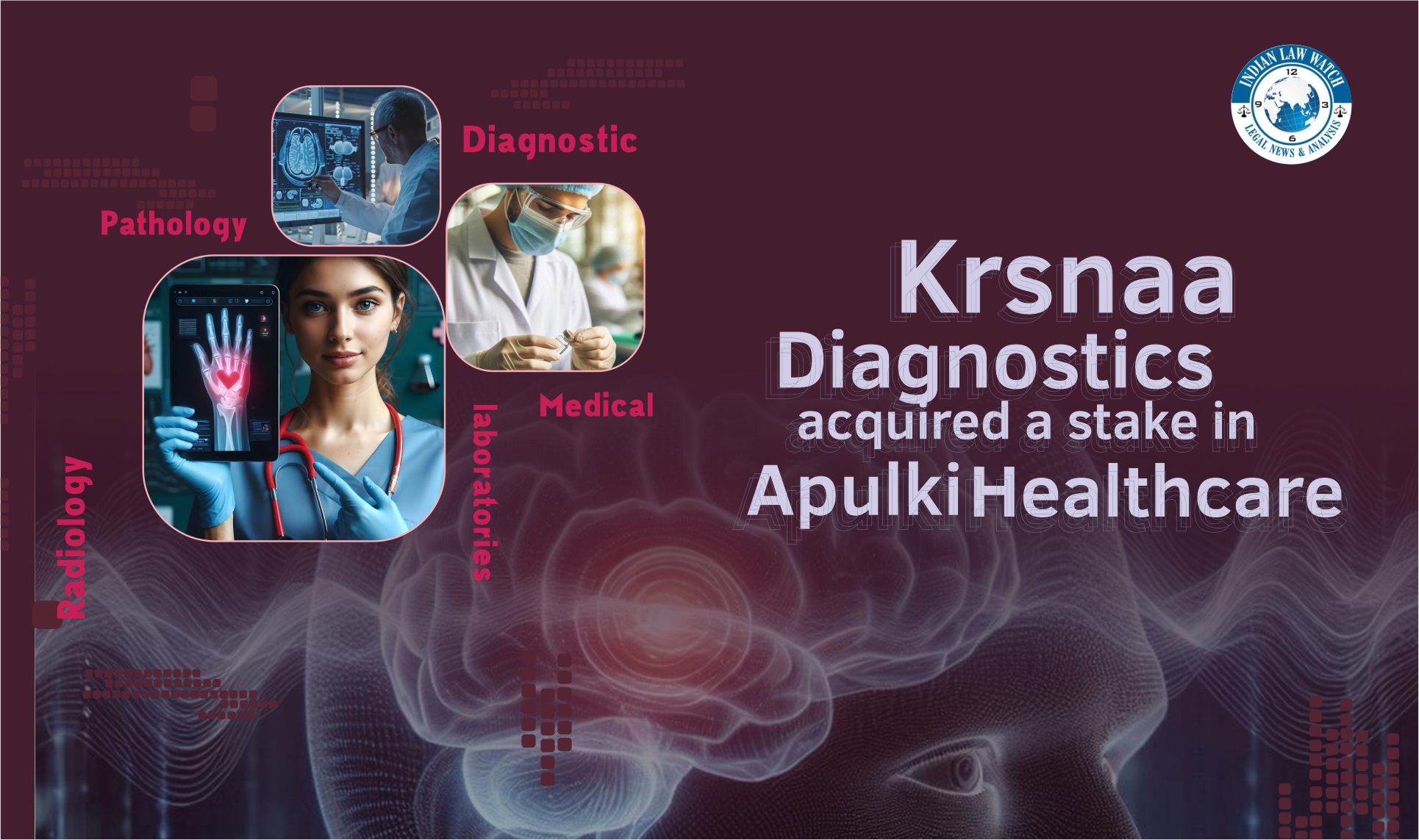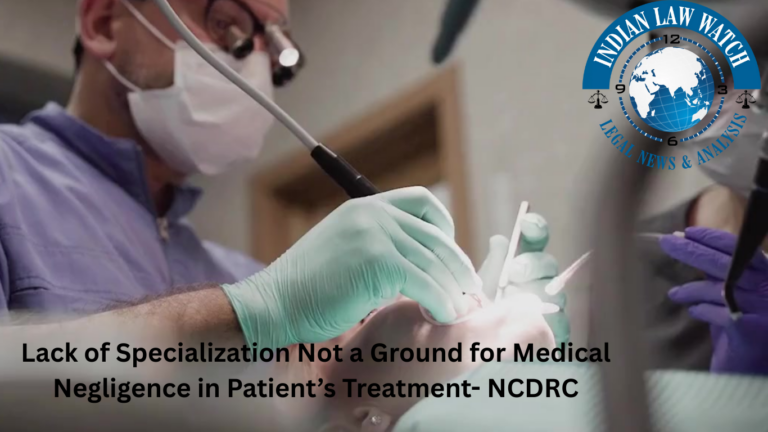

Krsnaa Diagnostics Ltd., India’s largest diagnostic services provider in Radiology and Pathology, was in the news as it acquired a 23.53% stake in Apulki Healthcare Private Limited on September 25, 2024. Krsnaa Diagnostics Limited will pay a cash consideration. The acquirer board has approved the deal. It is expected to be completed between September 25, 2024, and December 25, 2024. Apulki Healthcare Private Limited is an unlisted private company incorporated on June 13, 2022. It is classified as a private limited company in Pune, Maharashtra. Under this collaboration, Krsnaa will deliver a comprehensive suite of integrated diagnostic services at Apulki’s facilities, enhancing access to advanced and super-specialized diagnostics.
What does the Collaboration Mean?
Through this collaboration, Krsnaa Diagnostics will offer a full range of integrated diagnostic services at Apulki’s healthcare facilities. This means that Krsnaa will provide various medical testing services, including advanced and super-specialized diagnostics, thereby improving access to high-quality diagnostic care at Apulki’s centres. Patients will benefit from a broader range of diagnostic services, faster turnaround times, and more accurate results, enhancing their overall healthcare experience.
Under this collaboration, Krsnaa Diagnostics will become the exclusive diagnostics partner for Apulki’s state-of-the-art cancer and cardiac hospitals for the next 30+ years. This long-term partnership ensures Krsnaa’s sustained leadership in the high-growth oncology and cardiac diagnostic segments, with access to Apulki’s planned network of 10+ hospitals across India. This not only secures Krsnaa’s future market share but also promises a steady stream of revenue for the next three decades, making it an attractive investment opportunity.
- The initial rollout includes two advanced 125+-bedded hospitals in densely populated regions of Pune and Mumbai, with more hospitals to follow in other metropolitan areas.
- By offering a comprehensive suite of cutting-edge diagnostic technologies—including MRI, PET CT, Cardiac CT, and Advanced Pathology—available 24×7 under one roof, Krsnaa and Apulki will provide seamless, world-class diagnostic services for patients undergoing cancer and cardiac treatment, as reports claim.
- By acquiring a stake in Apulki, Krusnaa is positioning itself at the forefront of the rapidly expanding cancer and cardiac care segment. The investment is subject to the fulfilment of certain conditions precedent, and the exact amount will be disclosed once they sign the definitive documents. However, it is essential to note that this investment will not strain cash flows, as it will be funded entirely through internal accruals over the next 2-3 months.
- This partnership also marks a significant milestone for Krsnaa on the retail front, enabling us to establish comprehensive diagnostic centres in premium urban locations.
- Through this collaboration, we will serve the captive patients within the hospitals and cater to the growing number of retail patients seeking advanced diagnostics in these urban areas.
The collaboration is deeply committed to delivering high-quality, affordable diagnostics. This partnership perfectly aligns with our vision of making advanced healthcare accessible to all, ensuring that patients receive the best possible care at reasonable costs. Yash Mutha, Joint Managing Director of Krsnaa Diagnostics Ltd, said in a statement. The company added that this partnership aims to accelerate early detection, enhance treatment accuracy, and ultimately improve survival rates through timely and accurate diagnoses, instilling hope for better healthcare outcomes. Healthcare Compliance issue of Prescribing Test more than Necessary
The Diagnostic Labs and Healthcare compliance concerns
Issue of Unnecessary Test
‘Unregulated’ is often used to describe various facets of the healthcare industry. Even though the merger is a great step, a significant concern for patients regarding diagnostics is the tendency of some healthcare providers to prescribe unnecessary tests—often at preferred labs, whether in-house at large hospitals or external labs, in exchange for hefty commissions. According to several online reports, there are instances where these tests are not even performed on the collected samples, and fake results are issued instead. This raises an important question about the Medical Council of India’s (MCI) effectiveness in curbing medical malpractice and corruption. Eliminating unnecessary testing is a crucial step the system must take to address such malpractice.
Eligibility to run laboratory
For seven years in Delhi, a so-called ‘laboratory’ run by an individual with a graduate degree in the arts issued reports without conducting any actual tests. Similarly, another ‘laboratory’ in the same city produced 30,000 fake reports in just one year. Many states in India have no entry barriers or minimum standards for establishing medical laboratories. This lack of regulation has increased the industry but has also led to the proliferation of substandard and fraudulent labs. The Clinical Establishments (Registration and Regulation) Act of 2010 (CEA) was introduced by India’s central government to address the lack of regulation in healthcare.
- The Act mandates the registration of state-run and private healthcare facilities, including medical laboratories.
- The CEA also sets minimum standards for regulating these establishments.
- Many states still need to adopt the CEA or update their existing laws. The current legislation does not cover laboratories in states like Delhi and Maharashtra. Gujarat, Kerala, and Punjab faced similar situations until recent updates. In states such as Andhra Pradesh, Karnataka, Madhya Pradesh, Manipur, Meghalaya, Nagaland, Odisha, and West Bengal, regulations apply only to private laboratories, with state-run labs being exempt from the rules.
Online health service aggregators operate like franchisees without having physical collection centres.
- These aggregators lack legal recognition, leading to a public interest litigation filed in the Delhi High Court in August 2020, seeking a ban on their operations.
- In January 2021, the Ministry of Health and Family Welfare (MoHFW) directed states to take action against online aggregators offering laboratory services.
- Despite this, these aggregators continue to operate, raising concerns about the quality of their services.
- Central or state legislation does not explicitly address the collection of samples from home, except in West Bengal, where it is allowed for individuals who are “unable or unwilling to attend the clinical establishment.”
A comprehensive database of medical laboratories in India is unavailable
Different sources provide varying and incomplete numbers. The estimated number of medical laboratories in India is around 100,000. The National Health Resource Repository (NHRR) lists 38,738 laboratories, representing nearly one-third of the estimated total. The National Register of Clinical Establishments under the CEA registers 34,337 allopathic clinical establishments, but it does not specify how many medical laboratories there are. The National Accreditation Board for Testing and Calibration Laboratories (NABL) reports 2,374 accredited laboratories nationwide.
The need for standardisation in medical laboratories, with different facilities following varying practices and supplier-induced demand driving the industry, raises significant concerns about the reliability of test results.
Other contributing factors include unqualified professionals, proxy signatories, and substandard equipment, consumables, and reagents, all of which compromise the quality of laboratory services. These issues can lead to severe consequences, such as false positives (e.g., misdiagnosing breast cancer or a life-threatening condition) or false negatives (e.g., missing a leukaemia diagnosis). In one case, a couple in Bangalore could have jeopardized their newborn’s life had they not sought a repeat test for thalassemia.
Diagnostic investigations comprise a significant proportion of the healthcare cost, a reason people may forego necessary investigations.
In the National Sample Survey 75th Round (2017/18), the average out-of-pocket expenditure on diagnostics is reported to be 12.6% of the total healthcare cost for outpatient care. In cases of hospitalization, the price ranges from 9.5% in the private sector to 17.7% in the public sector.66 There is little or no cost control on diagnostics in India.
Medical laboratories must inform users and the state to maintain transparency and accountability.
In states or UTs where the CEA is in force, laboratories must display their charges publicly, and hospitals must provide information about investigations in the discharge summary. In Chhattisgarh and Kerala, laboratory inspection reports must be placed in the public domain. In West Bengal, information regarding available services, personnel, mechanisms to avail concessions, and the charter of the patient’s rights needs to be displayed. A discharge summary, including laboratory investigations, must be provided even if the patient leaves against medical advice. For users’ benefit, the MoHFW must publish a list of registered clinical establishments, including medical laboratories, in those states and UTs where the CEA is in force. Among other states, Tamil Nadu and Kerala have similar provisions.

Medical laboratory services in India have developed in an unregulated environment. Without mandatory registration and established minimum standards, these facilities have functioned like any other commercial enterprise, resulting in minimal quality control. As a result, news reports about fraudulent laboratories and inaccurate test results frequently surface in the media. Although regulations for medical laboratories have emerged in recent years, many states still need to update their policies. While states like Chhattisgarh, Karnataka, Kerala, Tamil Nadu, and West Bengal have implemented more comprehensive legislation, Delhi and Maharashtra have made little progress, and states such as Madhya Pradesh, Meghalaya, Nagaland, and Odisha have insufficient regulations. Coverage of state-run laboratories, hospital laboratories, collection centres, and home collection services varies significantly across state regulations. Despite court orders and directives from the Government of India to cease operations, online health service aggregators continue illegally providing laboratory services. Unaware of these violations, users are drawn in by these operators’ convenience and discounts.

1. Gupta, P., & Nandraj, S. (2023). Challenges and gaps in regulating medical laboratories in India. Medical Law International, 23(4), 351-367.
https://doi.org/10.1177/09685332231194199
2. Singh R. (2016, August 11), How Indian doctors and private hospitals are fleecing patients and corporates, LinkedIn:
3. Krusnaa Diagnostics, (n.d.), About Investors,
https://krsnaadiagnostics.com/investors/





